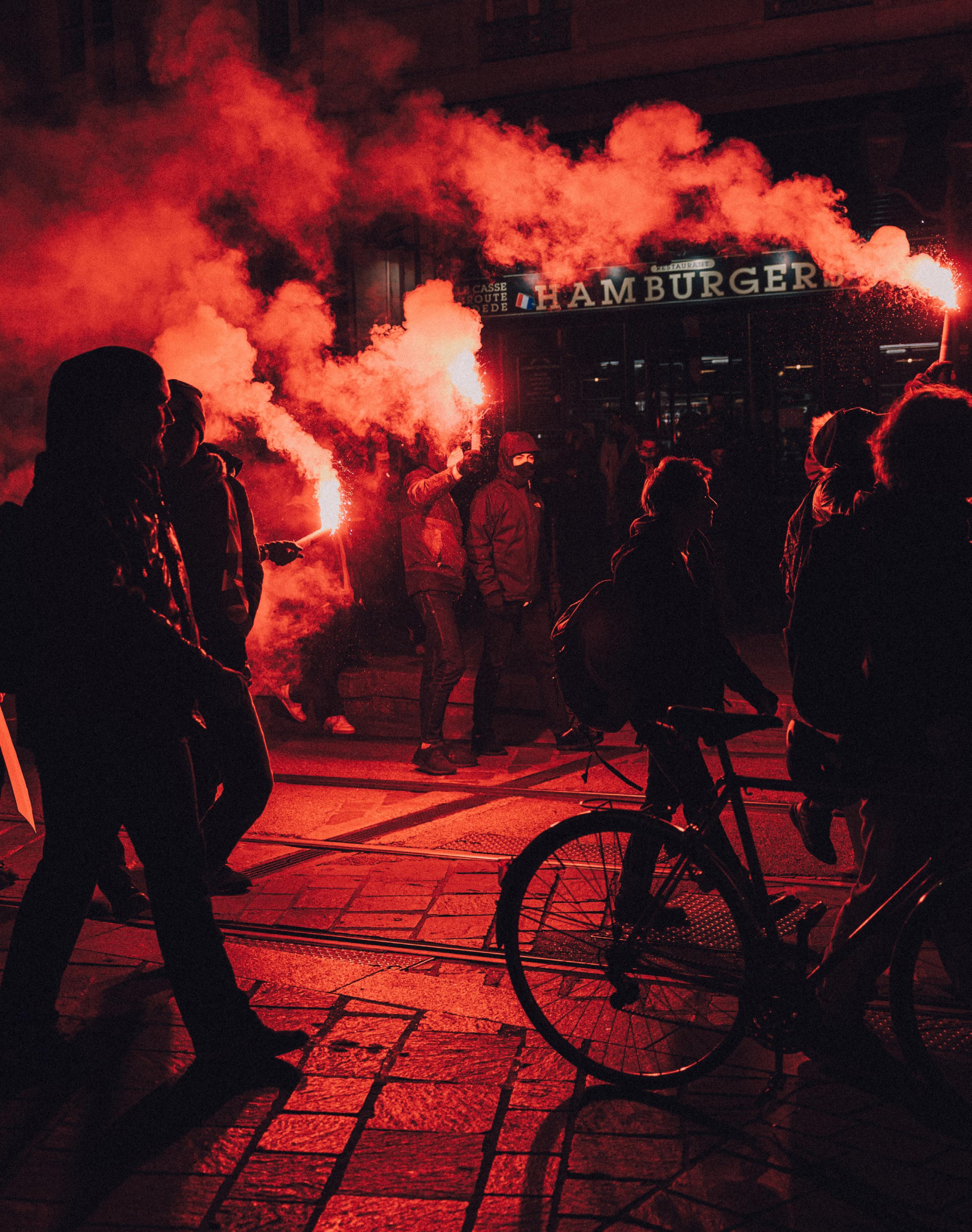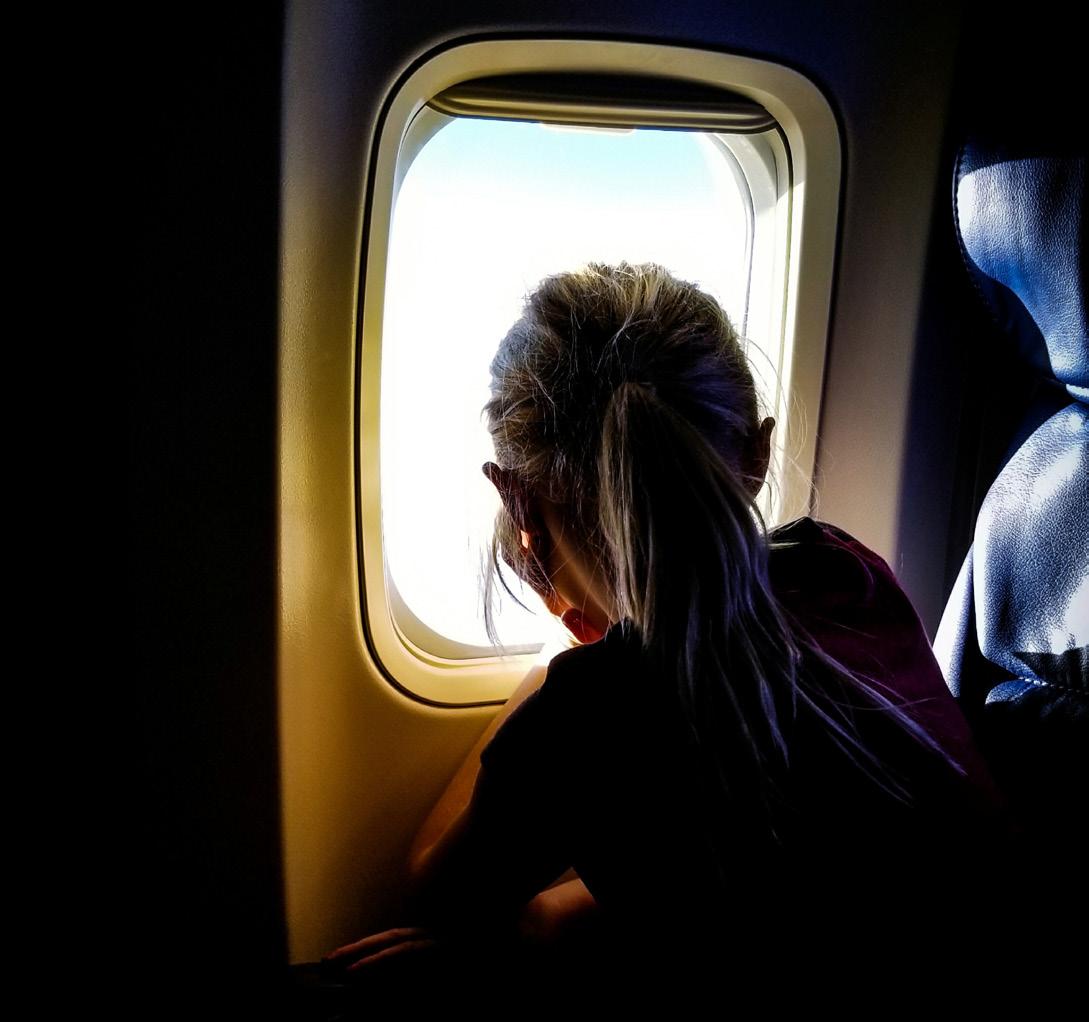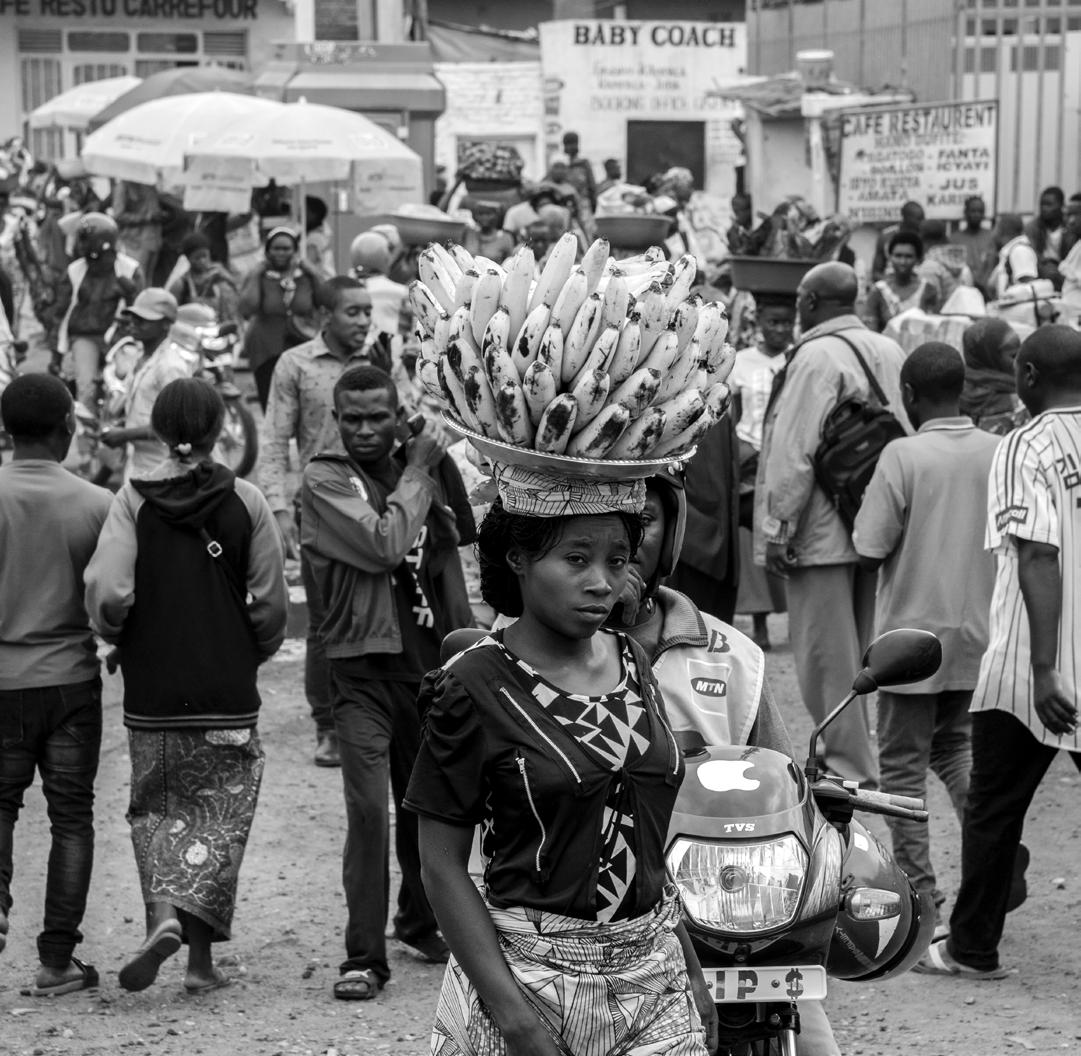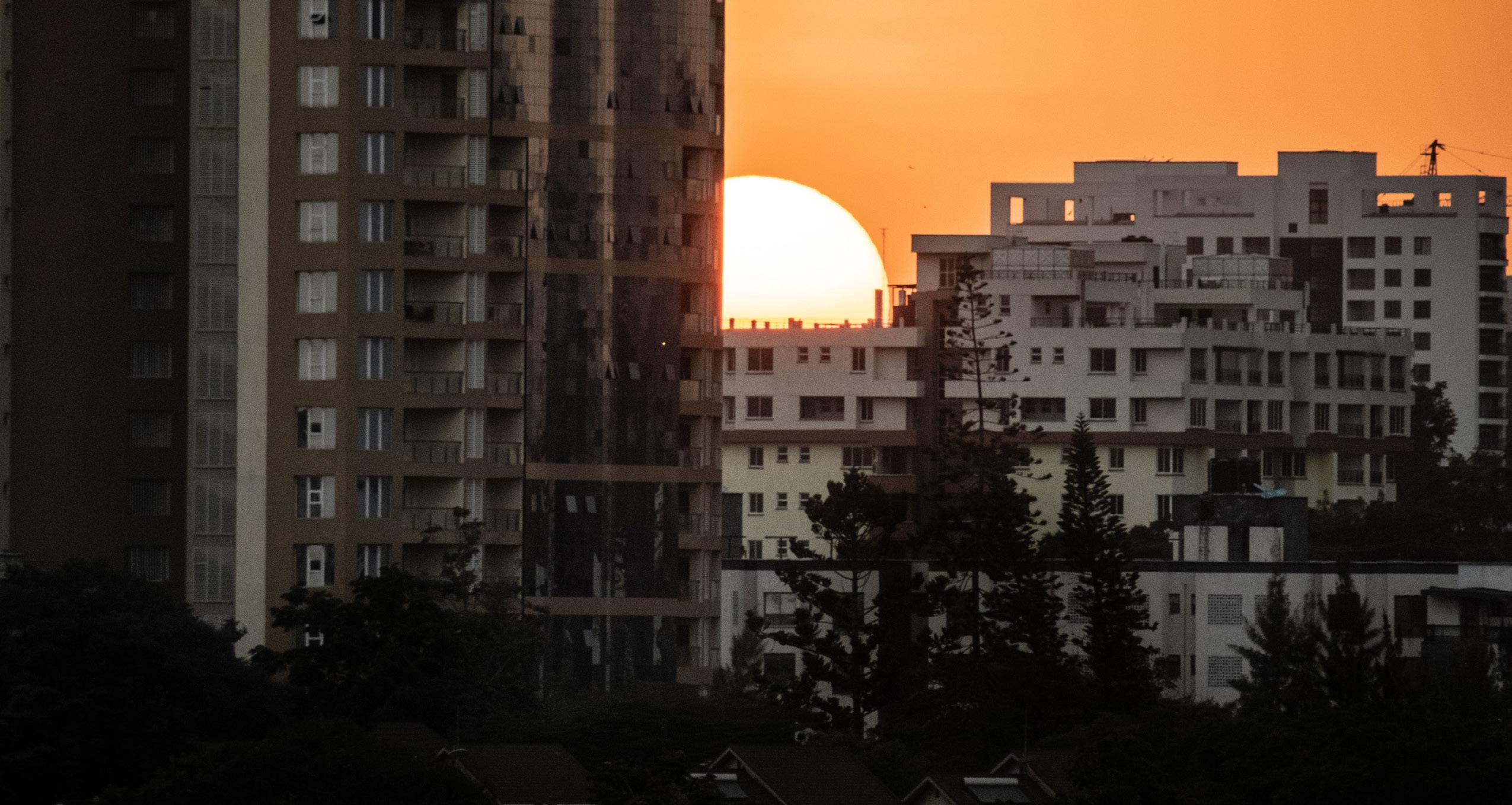
7 minute read
Chaos in Context: Examining Childhood Crises Rachel E. Hicks
Chaos in Context: Examining Childhood Crises
By Rachel E. Hicks
Advertisement
Growing up, my TCK friends and I would sometimes compete to see who had the craziest or most frightening disaster story. (Facts such as whether the crisis happened to us or to someone we knew were sometimes left a little unclear.)
During the coup attempt, we had to stay inside for days… I was on a hijacked plane at the airport a couple years ago… My family and I barely escaped the tsunami… We had to be evacuated while the city was being looted… My friend’s brother died in the stampede… There were bullet holes in the walls of our house… I was there for the big earthquake…
I used to think that TCKs’ chances of experiencing a crisis or disaster were higher than those of our non-TCK peers around the world. I don’t think so anymore. In fact, I think that’s a fairly ignorant, possibly even arrogant, assumption. Disaster touches just about everyone’s life at some point—TCKs don’t have a corner on the crisis market (case in point: the world in 2020).
That said, I’m aware that many of you do have stories. And they are stories you should be able to tell. You’ve lived through some tough, crazy things. Maybe you came out of it fairly unscathed and you’re able to enliven a room of friends or family with your adventures. Perhaps the crisis left a mark on your mind or in your heart that you haven’t been able to shake or understand— especially if you had no chance to debrief it in some helpful way.
How did you process it as a child or teen? Most of us were probably focused on how it affected us, our circumstances, our routines, our family, our school community. It was harder, understandably, for us to see the larger picture—in particular, to see how the crisis affected those more vulnerable than we. That’s natural for children and not something to feel guilty about.
But now that we’re older, have we revisited the crisis with an adult’s perspective? With the clarifying effects of the passage of time? With more historical understanding of the situation in that city or country?

We often tell and retell certain stories without thinking. We’re used to telling them a certain way and from a certain perspective. Sometimes that perspective is our own, but sometimes we’re parroting the narrative we’ve heard others (usually trusted adults in our lives) share.
I’ve been thinking about perspective while putting this issue together in light of the most consequential crisis I lived through as a kid. In 1991, when I was fourteen, my family was evacuated along with other foreigners from Kinshasa, Democratic Republic of Congo (Zaire at the time), after a week of rioting and looting in the city. Referred to as le pillage, the chaos started when soldiers who hadn’t been paid in months started looting stores in frustration at President Mobutu’s corrupt administration; equally upset and following the soldiers’ example were many impoverished citizens who were dealing with insane levels of hyperinflation and unemployment. For days the city burned while we hunkered down in our house on the American school compound. At night tracer bullets flashed through the darkness outside our walls, some of them embedding in the houses to either side of ours. During daylight hours, we watched people walking by on the streets outside the fence carrying whatever loot they had found. We even saw someone carrying a door that had been ripped off its hinges.
At all hours of the day and night that week, we kept our CB radio on to listen for instructions from the American embassy. We heard people making frantic calls to the embassy as mobs were climbing over their walls to loot their houses.
“Hide in the bathroom and just let them take whatever they want to take,” was the advice given. We met with other teachers’ families on the compound to discuss plans once we heard that evacuation orders were imminent. We boxed up our most valued belongings and stashed them in an attic space, hoping that they wouldn’t be found if our house was looted. Finally, we left in a caravan of cars headed for the banks of the Congo River, each of us allowed one suitcase. We took a ferry across to Brazzaville, where we were processed at the consulate general’s house before being taken to the airport and put on a plane bound for Andrews Air Force Base in the US.
For years, my main focus in telling the story of the evacuation was on what I had lost—most importantly, my friends. I don’t remember what I packed in my suitcase, or what items I left behind. But I remember the deep pain of losing my best friends as we were scattered all over the world. Some of them were on the evacuation plane with me, but others I never got to say goodbye to. I went through the rest of that school year in a daze, struggling with culture shock in a small western Pennsylvanian town.

Sometime in the year following that event, I wrote a poem about it (see poem following this article). It was a rambling, embarrassingly sentimental poem—typical for an emotional young teenager. When I read that poem more recently, I realized that even then I had begun to reflect on what le pillage had meant for those left behind—the Zairois whose city was destroyed along with their economy, yet with nothing to show for their protests. My poem began and ended with my personal losses, but sandwiched in the middle, I’d written about driving in that caravan to the dock and seeing people sitting on the curbs in shock and hopelessness. What was left for them? What would they do now?
My life went on. I moved countries two more times during high school. I never debriefed the evacuation. I told the story now and then, but it wasn’t until many years later—when Wikipedia (and the internet) had become a thing—that I realized I didn’t understand much about the context. I’d known about Mobutu’s corruption, but what led to le pillage? I was astounded to read about how the US government had supported Mobutu in his early years in power, though he quickly established a total dictatorship over the country. I read about the three decades of suffering and oppression he inflicted on his people, and about how he was finally forced from power in 1997, dying in exile three months later. I wasn’t curious about this history when I lived in the DRC for a little over a year as a young teenager. I was happy in my international school bubble, and only began asking questions when the powder keg exploded and it affected me personally.
I’ve moved far beyond the evacuation personally, but the people of the DRC are still affected in many ways from those decades of suffering under Mobutu. When I read news stories now about that region of Africa, I feel a connection to a place I once lived, but what is top of mind is a desire to better understand the complexities of the context, the history behind the current struggles.
To me, the evacuation was an event—a lifechanging, deeply impactful event, but an event followed by years of mostly less dramatic events. Now that I’m decades older, I revisit that event when I read about refugees fleeing their homes in the midst of war or conflict. My mind makes connections to the broader human story that it didn’t—perhaps couldn’t—make at the time. Oppression, economic devastation, displacement, violence—these are too often part of our common human story. I’ve seen them in almost all of the countries I’ve lived in throughout my life—most recently here, in my passport country, the United States of America.
Being able to revisit these kinds of childhood crises through a broader and deeper lens in adulthood is perhaps an unexpected gift. It can enable us to move closer to others in empathy and solidarity. It can help us find a voice, either for ourselves or on behalf of others who are as yet not being heard. And it can help us move about in the world with humility and curiosity as bridge builders and peacemakers.

Rachel E. Hicks is the editor of Among Worlds magazine. She was born in the foothills of the Himalayas and spent the bookends of her childhood in India, with moves to Pakistan, Jordan, Democratic Republic of Congo, and Hong Kong in between. She lived with her husband and two children in Arizona (US) and China. Since 2013 they have lived in Baltimore, Maryland. Rachel writes poetry, fiction and essays and works as a freelance copyeditor. A few of her favorite things include: electric scooters, spicy Sichuan food, hiking, and unhurried time to read. Read more of her writing at rachelehicks.com.










